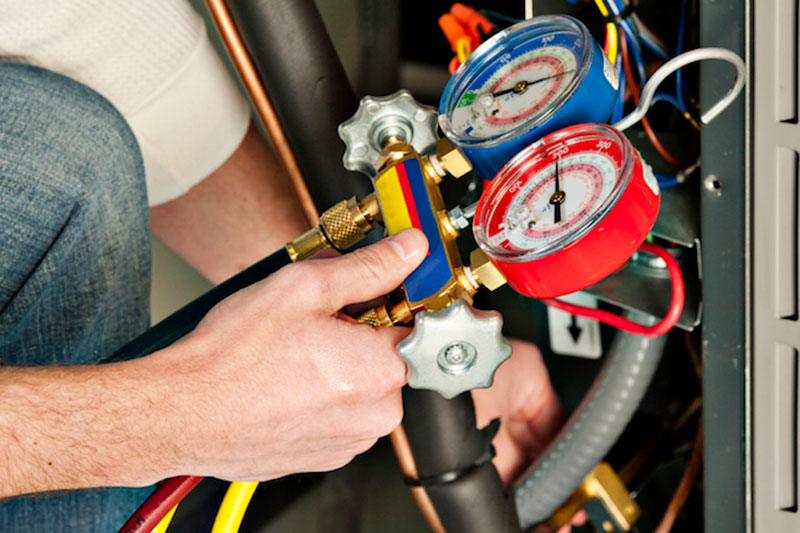
You might not think much about how your air conditioner operates, but it needs refrigerant to keep your home cool. This refrigerant is bound by environmental laws, because of the chemicals it contains.
Depending on when your air conditioner was added to your home, it may require R-22, R-410A or R-32 refrigerant. We’ll go over the differences and which air conditioner refrigerants are being phased out in Ellsworth, as well as how these phaseouts have on influence on you.
What’s R-22 and Why Is It No Longer Being Made?
If your air conditioner was added before 2010, it likely contains Freon®. You can discover if your air conditioner uses it by contacting us at 715-318-6728. You can also examine the name plate on your air conditioner condenser, which is located outside your home. This sticker will have info on what model of refrigerant your AC has.
Freon, which is also referred to as R-22, contains chlorine. Scientists consider this chemical to be bad for the earth’s ozone layer and one that results in global warming. The Environmental Protection Agency, which controls refrigerants in the United States, banned its manufacture and import in January 2020.
I Have a R-22 Air Conditioner. Should I Replace It?
It varies. If your air conditioning is running correctly, you can continue to run it. With yearly air conditioner maintenance, you can expect your AC to last around 15–20 years. However, the Department of Energy says that substituting a 10-year-old air conditioner could save you 20–40% on annual cooling bills!
If you don’t install a new air conditioner, it can create an issue if you have to have air conditioning repair later on, specifically for refrigerant. Repairs can be higher-priced, as only reduced levels of recycled and reclaimed R-22 is on hand.
With the discontinuation of R-22, a lot of new air conditioners now use Puron®. Also known as R-410A, this refrigerant was created to keep the ozone layer healthy. As it requires a different pressure level, it isn’t compatible with air conditioners that use R-22 for cooling.
However, Puron still has the likelihood to create global warming. As a result, it could also sometime be phased out. Although it hasn’t been communicated yet for residential air conditioners, it’s anticipated sometime this decade.
What Refrigerant Will Take the Place of R-410A?
In preparation of the phaseout, some brands have initiated using R-32 in new air conditioners. This refrigerant is classified low for global warming likelihood—about one-third less than R-410A. And it also reduces energy use by around 10%, according to the Intergovernmental Panel on Climate Change’s Fourth Assessment Report. That’s savings that may be forwarded on to you through your utility expenses.
Walter's-Eaton's Electric, Plumbing, Heating & AC Can Provide Support with All Your Air Conditioning Needs
In short, the changes to air conditioner refrigerant probably won’t concern you a whole lot until you need repairs. But as we went over beforehand, refrigerant repairs can be pricier due to the low amounts that are accessible.
In addition to that, your air conditioner often breaks down at the worst time, frequently on the muggiest day when we’re experiencing many other requests for AC repair.
If your air conditioner relies on a phased out refrigerant or is getting old, we recommend installing a new, energy-efficient air conditioner. This ensures a hassle-free summer and might even decrease your cooling bills, especially if you select an ENERGY STAR®-rated air conditioner. Plus, Walter's-Eaton's Electric, Plumbing, Heating & AC has many financing solutions to make your new air conditioner work with your budget. Contact us at 715-318-6728 to get started now with a free estimate.

